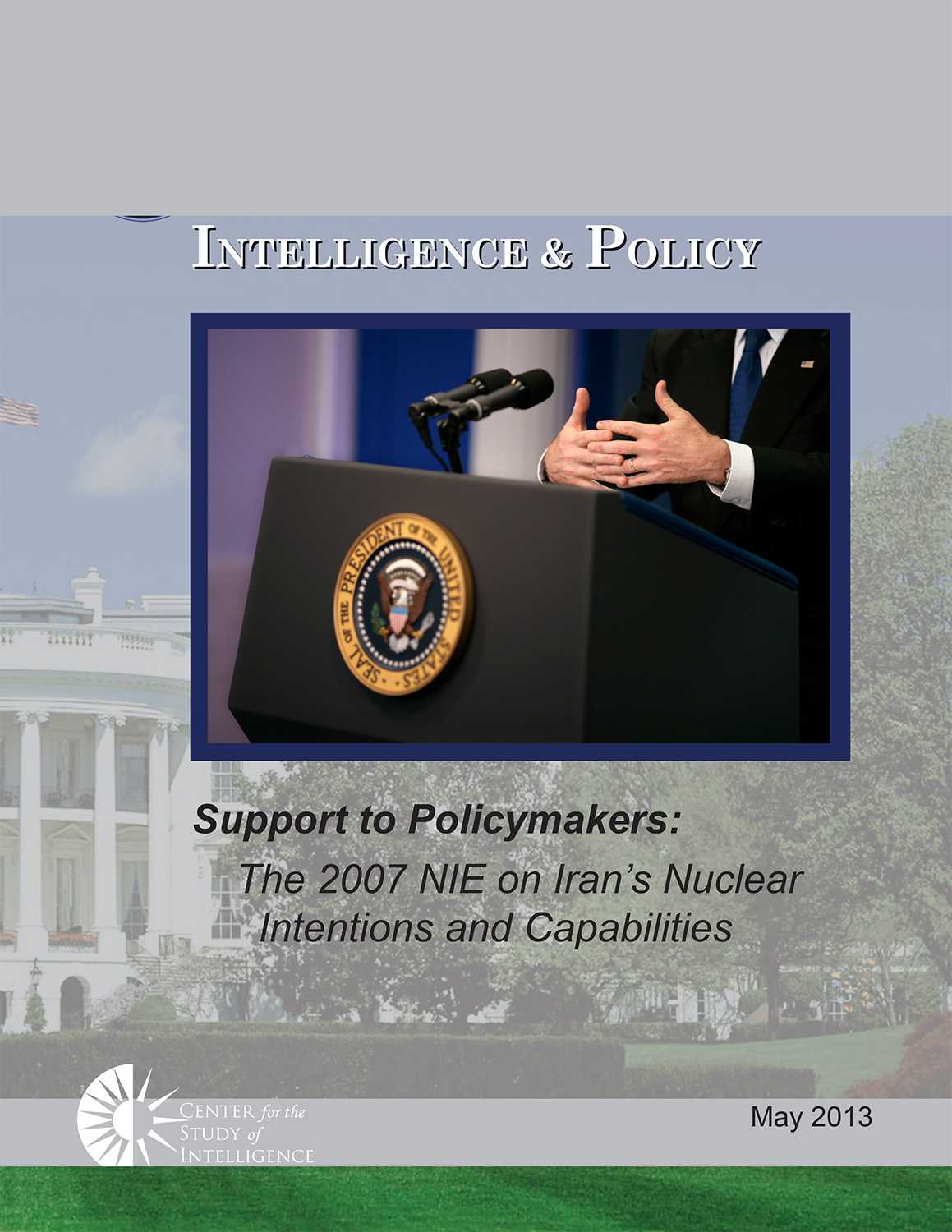Publication Details
Published May 2013
By: Gregory F. Treverton RAND Corporation
“We judge with high confidence that in fall 2003, Tehran halted its nuclear weapons program.”
So declared the opening words of the key judgments of the November 2007 National Intelligence Estimate (NIE), Iran’s Nuclear Intentions and Capabilities. Done by the National Intelligence Council (NIC), those key judgments were declassified and made public in December 2007, igniting a firestorm of controversy. The clause seemed to undercut not only any argument for military action against Iran but also the Bush administration’s international campaign for sanctions against that country. President George W. Bush called the language “eye-popping,” all the more so because it came despite the fact that Iran was testing missiles that could be used as a delivery system and had announced its resumption of uranium enrichment.
This case study is the story of how intelligence and policy disconnected. On one hand, those who produced the estimate were proud of the tradecraft that went into it, and its main conclusion stood the test of time. Yet the furor over the public release of its key judgments left policy officials feeling blindsided. As the president himself put it: “The NIE had a big impact—and not a good one.” How that disconnect came to be and what lessons it suggests for future best practices are the subjects of this case.
Editor’s Notes (July 2016): This is one of three monographs posted in CSI Books and Monographs that were produced during 2013–2015 by the RAND Corporation under CSI’s sponsorship. The principal author of all three is Gregory F. Treverton, who at the time of writing was a senior researcher at the RAND Corporation. The work represents one of the missions of the Center for the Study of Intelligence, which is to study important aspects of US intelligence support to policymakers and to derive lessons from such studies that may be applied in the present and the future. Originally published for official use only, these three studies have been reviewed for classification purposes and are made available here as wholly unclassified products. The other titles in this three-part posting are CIA Support to Policymakers: The First Callers—The President’s Daily Brief Across Three Administrations (2013) and CIA Support to Policymakers: Unheeded Warning of War (2015).
These reports are based on reviews of unclassified documents, publicly available oral history interviews, and interviews with senior policymakers involved in the events they describe. All statements of fact, opinion, or analysis expressed in them are those of the author or authors. They do not necessarily reflect official positions or views of the CIA or any other US government entity, past or present. Nothing in the contents should be construed as asserting or implying US government endorsement of an article’s factual statements and interpretations.
